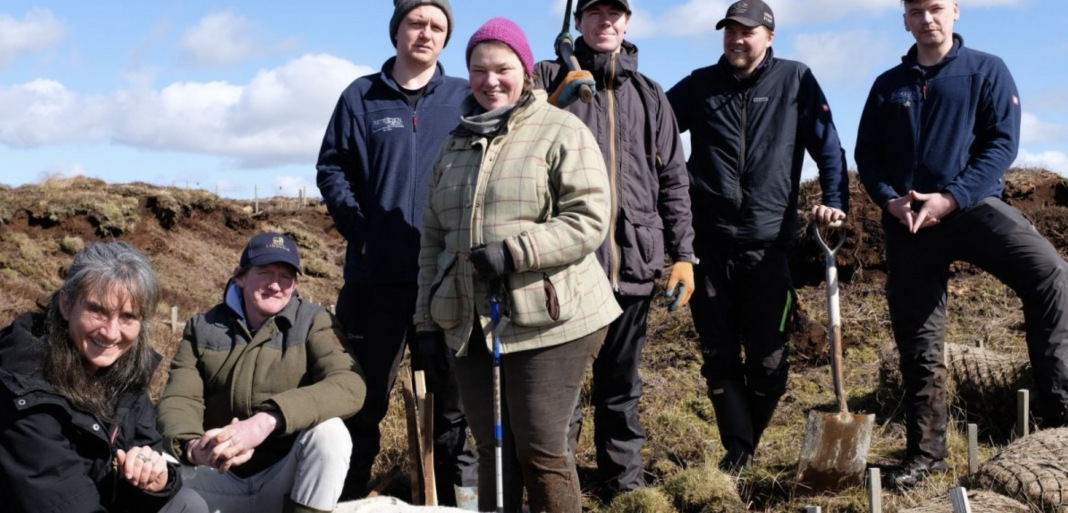The grant enabled her to work with four local farmers to produce ‘wool logs’ for use in peatland restoration.
On Monday a total of 30 one-metre-long logs – each stuffed with scoured wool from three otherwise almost worthless Swaledale sheep fleeces – were laid across erosion channels at the Fleet Moss peatland.
If the logs prove successful in holding back water and allowing the bare peat to revegetate, the production of wool logs could be massively scaled up.
Yorkshire Peat Partnership, which includes the National Park Authority, has spent the past five years carrying out intensive restoration work on the Fleet Moss bog.
Until now logs made of imported coconut husk have been used to block erosion channels. The logs, as well as other restoration measures, have seen the return of the sundew plant, mosses and native grasses to areas of bare peat.
Peatland restoration is regarded as an urgent conservation priority in the National Park; functioning peat bogs can sequester huge amounts of carbon and provide a home to insects such as dragonflies and wading birds such as golden plover.
One of the four Upper Wensleydale farmers who donated part of their wool crop to the trial was Andrew Kiely from Hardraw. He said: “For decades fleeces have been worthless. My last wool cheque was £35 for 500 fleeces – and it cost me that much to send the wool to the depot.
“It’s pleasing to see this trial taking place and seeing our wool doing this job. I think a lot of local farmers would be very happy to see our wool going to these peat restoration projects.”
Textiles entrepreneur Ruth Lindsey said: “The wool in these logs have travelled only 150 miles from the farm to the processors in West Yorkshire and back to this peatland. That makes wool a lot more sustainable than the coir which has come across the world – and we think it is capable of doing as good a job, if not better.
“We’re aiming to pay 30 pence a kilo of wool, if the trial is successful. That’s still not enough, but it’s much more than the fleeces are currently fetching.”
Mrs Lindsey said she had received enquiries that could lead to orders for many thousands of wool logs next year.
Peat Restoration Officer at the Yorkshire Peat Partnership, Jenny Sharman, said: “I think we’ll know whether the wool logs work as well as the coir relatively quickly – perhaps as soon as six months. We’ve tried using wool before put it hasn’t been packed properly like these logs. I think they are likely to hold the water back.
“The coir logs we use are a critical part of peatland restoration. Before we put the logs in on Fleet Moss, all you could see was bare peat. The vegetation has all come back within a couple of years.”
“Wool would be a win-win. It ticks all the boxes in terms of the environment and supporting local farmers and businesses. Everything becomes a team effort. We’re all working together.”



